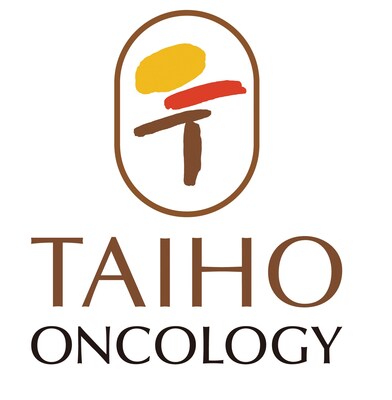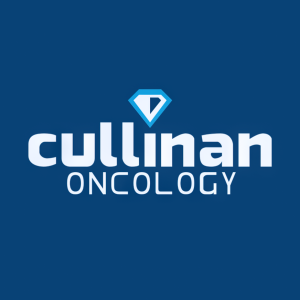Taiho Oncology and Cullinan Therapeutics Announce Pivotal REZILIENT1 Phase 1/2 Data Published in the Journal of Clinical Oncology
Rhea-AI Summary
Positive
- Strong efficacy with 35.2% overall objective response rate in primary efficacy population
- Impressive 40% response rate in patients treated after platinum-based chemotherapy
- Meaningful duration of response at 8.8 months and progression-free survival of 9.4 months
- Demonstrated efficacy in difficult-to-treat brain metastases patients with 30.9% response rate
- Manageable safety profile consistent with previous data
Negative
- None.
Insights
Zipalertinib shows promising 35.2% response rate in hard-to-treat EGFR ex20ins lung cancer, particularly valuable as an oral therapy option.
The REZILIENT1 trial results for zipalertinib represent a significant development in the treatment landscape for NSCLC patients with EGFR exon 20 insertion mutations. The 35.2% overall response rate in the primary efficacy population is clinically meaningful, especially considering this difficult-to-treat mutation subtype has historically had limited targeted therapy options.
The drug's performance is particularly noteworthy in two key areas: First, in patients who received only prior platinum-based chemotherapy, the response rate increased to 40%, suggesting potential advantages as an earlier-line targeted therapy. Second, the 8.8-month duration of response indicates sustained clinical benefit, critical for this patient population.
What's especially valuable is zipalertinib's demonstrated activity in patients with brain metastases (30.9% ORR) and in those previously treated with amivantamab (30% ORR with impressive 14.7-month duration). Brain metastases represent a significant clinical challenge in NSCLC, and effective penetration of the blood-brain barrier is a distinct advantage.
As an oral targeted therapy, zipalertinib would provide a more convenient administration route compared to intravenous options like amivantamab, potentially improving quality of life and treatment adherence. The ongoing Phase 3 REZILIENT3 trial will be crucial to confirm these findings in a larger population and potentially support regulatory approval.
The full publication, titled Zipalertinib in Patients With Epidermal Growth Factor Receptor Exon 20 Insertion-Positive Non-Small Cell Lung Cancer Previously Treated With Platinum-Based Chemotherapy With or Without Amivantamab, can be found here.
Highlights of the REZILIENT1 Phase 1/2 trial in the authors' conclusions include:
- Zipalertinib demonstrated clinically meaningful efficacy in the primary efficacy population (n=176), including 51 patients who had received prior amivantamab.
- The confirmed objective response rate (ORR) was
35.2% overall, and median duration of response (mDOR) and progression-free survival were 8.8 months and 9.4 months, respectively. - In patients treated after prior platinum-based chemotherapy only (n=125), ORR was
40% with mDOR of 8.8 months. - The safety profile of zipalertinib was manageable and consistent with previously reported data.¹
- In exploratory subgroup analyses:
- Patients who had received prior amivantamab without other ex20ins-targeted therapy showed a confirmed ORR of
30% and mDOR of 14.7 months. - Patients with brain metastases showed a confirmed ORR of
30.9% and a mDOR of 8.3 months.
- Patients who had received prior amivantamab without other ex20ins-targeted therapy showed a confirmed ORR of
"Despite recent treatment advances for patients with EGFR ex20ins-mutant NSCLC, there is a lack of oral targeted therapies for patients whose tumors harbor these mutations," said principal investigator Zofia Piotrowska, MD, Assistant Professor, Medicine, Harvard Medical School and a clinical researcher and lung cancer medical oncologist at the Massachusetts General Hospital Cancer Center. "Findings from the Phase 1/2 REZILIENT1 trial support our understanding of zipalertinib as a potential targeted therapy option for patients living with previously treated recurrent or metastatic NSCLC harboring EGFR ex20ins mutations."
Taiho Oncology is actively recruiting patients in the Phase 3 REZILIENT3 trial (NCT05973773).
About REZILIENT1
REZILIENT1 (Researching Zipalertinib In EGFR Non-Small Cell Lung Cancer Tumors) is a Phase 1/2 clinical trial (NCT04036682) to evaluate efficacy and safety of zipalertinib in adult patients with advanced or metastatic NSCLC harboring EGFR exon 20 insertion mutations who have received prior therapy. The primary endpoints were ORR and DOR as assessed by blinded independent central review (ICR) per RECIST v1.1. Adverse events were characterized and graded according to Common Terminology Criteria for Adverse Events (CTCAE v5.0).
About Zipalertinib
Zipalertinib (development code: CLN-081/TAS6417) is an orally available small molecule designed to target activating mutations in EGFR. The molecule was selected because of its ability to inhibit EGFR variants with exon 20 insertion mutations, while sparing wild-type EGFR. Zipalertinib is designed as a next generation, irreversible EGFR inhibitor for the treatment of a genetically defined subset of patients with non-small cell lung cancer. Zipalertinib has received Breakthrough Therapy Designation from the FDA. Zipalertinib is investigational and has not been approved by any health authority.
Zipalertinib is being developed by Taiho Oncology, Inc., its parent company, Taiho Pharmaceutical Co., Ltd., and in collaboration with Cullinan Therapeutics, Inc. in the
About EGFR Exon 20 Insertion Mutations
NSCLC is a common form of lung cancer and up to
About Taiho Oncology, Inc.
The mission of Taiho Oncology, Inc. is to improve the lives of patients with cancer, their families and their caregivers. The company specializes in the development and commercialization of orally administered anti-cancer agents for various tumor types. Taiho Oncology has a robust pipeline of small-molecule clinical candidates targeting solid-tumor and hematological malignancies, with additional candidates in pre-clinical development. Taiho Oncology is a subsidiary of Taiho Pharmaceutical Co., Ltd. which is part of Otsuka Holdings Co., Ltd. Taiho Oncology is headquartered in
For more information, visit https://www.taihooncology.com/, and follow us on LinkedIn and X.
About Cullinan Therapeutics
Cullinan Therapeutics, Inc. (Nasdaq: CGEM) is a biopharmaceutical company dedicated to creating new standards of care for patients. Cullinan has strategically built a diversified portfolio of clinical-stage assets that inhibit key drivers of disease or harness the immune system to eliminate diseased cells in both autoimmune diseases and cancer. Cullinan's portfolio encompasses a wide range of modalities, each with the potential to be best and/or first in class. Anchored in a deep understanding of oncology, immunology, and translational medicine, we create differentiated ideas, identify the most appropriate targets, and select the optimal modality to develop transformative therapeutics across a wide variety of autoimmune and cancer indications. We push conventional boundaries from candidate selection to differentiated therapeutic, applying rigorous go/no go criteria at each stage of development to fast-track only the most promising molecules to the clinic and, ultimately, commercialization. With deep scientific expertise, our teams exercise creativity and urgency to deliver on our promise to bring new therapeutic solutions to patients. Learn more about Cullinan at https://cullinantherapeutics.com/, and follow us on LinkedIn and X.
Forward Looking Statements
This press release contains forward-looking statements within the meaning of The Private Securities Litigation Reform Act of 1995. These forward-looking statements include, but are not limited to, express or implied statements regarding the company's beliefs and expectations regarding our plans regarding future data presentations, the clinical development and regulatory filing plan and timeline of zipalertinib, the safety and efficacy profile of zipalertinib and its potential to address unmet medical need, and other statements that are not historical facts. The words "believe," "continue," "could," "estimate," "expect," "intends," "may," "plan," "potential," "project," "pursue," "will," and similar expressions are intended to identify forward-looking statements, although not all forward-looking statements contain these identifying words.
Any forward-looking statements in this press release are based on management's current expectations and beliefs of future events and are subject to known and unknown risks and uncertainties that may cause our actual results, performance or achievements to be materially different from any future results, performance or achievements expressed or implied by the forward-looking statements. These risks include, but are not limited to, the following: uncertainty regarding the timing and results of regulatory submissions; the risk that any NDA or other regulatory submissions we may file with the United States Food and Drug Administration or other global regulatory agencies are not cleared on our expected timelines, or at all; the success of our clinical trials and preclinical studies; the risks related to our ability to protect and maintain our intellectual property position; the risks related to manufacturing, supply, and distribution of our product candidates; the risk that any one or more of our product candidates, including those that are co-developed, will not be successfully developed and commercialized; the risk that the results of preclinical studies or clinical studies will not be predictive of future results in connection with future studies; and the success of any collaboration, partnership, license or similar agreements. These and other important risks and uncertainties discussed in our filings with the Securities and Exchange Commission, including under the caption "Risk Factors" in our most recent Annual Report on Form 10-K and subsequent filings with the SEC, could cause actual results to differ materially from those indicated by the forward-looking statements made in this press release. While we may elect to update such forward-looking statements at some point in the future, we disclaim any obligation to do so, even if subsequent events cause our views to change, except to the extent required by law. These forward-looking statements should not be relied upon as representing our views as of any date subsequent to the date of this press release. Moreover, except as required by law, neither the company nor any other person assumes responsibility for the accuracy and completeness of the forward-looking statements included in this press release. Any forward-looking statement included in this press release speaks only as of the date on which it was made.
References
1. Piotrowska Z, Tan DS, Smit EF, et al. Safety, tolerability, and antitumor activity of zipalertinib among patients with non-small-cell lung cancer harboring epidermal growth factor receptor exon 20 insertions. Journal of Clinical Oncology. Available at: https://ascopubs.org/doi/full/10.1200/JCO.23.00152.
2. Burnett H, Emich H, Carroll C, et al. Epidemiological and clinical burden of EGFR exon 20 insertion in advanced non-small cell lung cancer: a systematic literature review. PLOS ONE. 2021;16(3):e0247620. Available at: https://journals.plos.org/plosone/article?id=10.1371/journal.pone.0247620.
3. Riess JW, Gandara DR, Frampton GM, et al. Diverse EGFR exon 20 insertions and co-occurring molecular alterations identified by comprehensive genomic profiling of NSCLC. Journal of Thoracic Oncology. 2018 Jul 5;13(10):1560–1568. Available at: https://www.jto.org/article/S1556-0864(18)30770-6/pdf.
Contacts
Taiho Oncology
Leigh Labrie
+ 609.664.9878
llabrie@taihooncology.com
Cullinan Therapeutics
Investors
Nick Smith
+1 401.241.3516
nsmith@cullinantx.com
Media
Jessica Weinstein
+1 508.254.3881
jweinstein@cullinantx.com
![]() View original content to download multimedia:https://www.prnewswire.com/news-releases/taiho-oncology-and-cullinan-therapeutics-announce-pivotal-rezilient1-phase-12-data-published-in-the-journal-of-clinical-oncology-302470143.html
View original content to download multimedia:https://www.prnewswire.com/news-releases/taiho-oncology-and-cullinan-therapeutics-announce-pivotal-rezilient1-phase-12-data-published-in-the-journal-of-clinical-oncology-302470143.html
SOURCE Taiho Oncology









